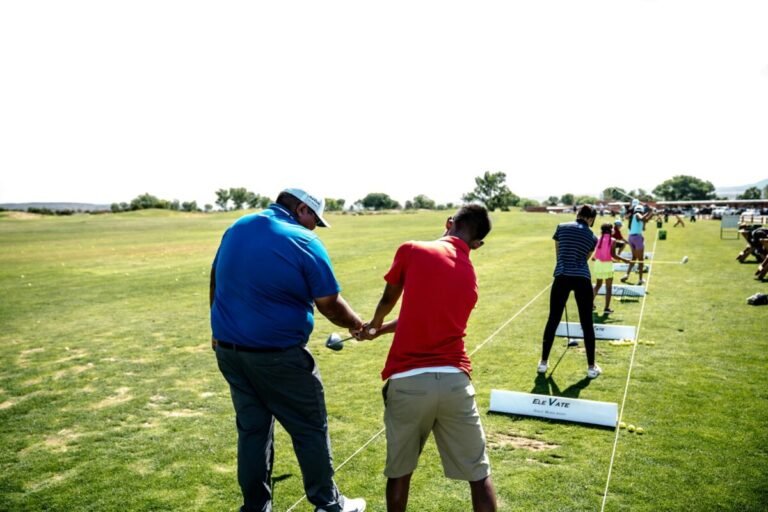If you’re applying for a Camp Counselor-in-Training (CIT) position, you might be wondering what to include on your resume, especially if this is your first formal role. You don’t need a long work history to make a strong impression; summer camps are looking for young people who are responsible, energetic, coachable, and eager to make a difference.
A CIT position is all about learning by doing—but camp leaders still want to know that you bring the right mindset to grow into a full counselor role.
That’s where strong, thoughtful action phrases come in.
Using action-based language on your resume helps you:
- Show responsibility and reliability
- Highlight leadership experiences (even small ones)
- Communicate your enthusiasm and teamwork skills
Whether your experience comes from babysitting, tutoring, school projects, extracurriculars, or just being a reliable team player, you can absolutely show that you’re ready for the CIT journey.
In this post, you’ll find 25 action statements to help you express your leadership potential, positive attitude, and ability to work well with others—even if your experience so far comes mostly from school, clubs, sports, or volunteering.
25 Resume Action Phrases for a Camp Counselor in Training (CIT) – With or Without Previous Camp Experience
These phrases are tailored for teens and first-time applicants, but they still sound confident and professional for any level of experience; perfect for helping your resume stand out above the rest.
Leadership & Responsibility (Even in Small Ways)
- Assisted with group activities at school or church events, helping younger students stay engaged and included.
- Helped organize materials and lead warm-up games during youth club meetings or summer programs.
- Volunteered to support teachers during recess or lunch periods, ensuring student safety and fair play.
- Acted as a peer mentor or group leader during school projects, encouraging teamwork and respect.
- Provided informal guidance to younger siblings, family members, or neighbors in day-to-day routines or play.
Activity Support & Planning
- Helped set up and clean up after events or activities, staying focused even during busy or messy moments.
- Contributed ideas during planning sessions for events like field days, dances, or assemblies.
- Created and led simple games, crafts, or challenges for younger children in a babysitting or volunteer setting.
- Adapted group activities on the spot based on weather, interest level, or time constraints.
- Supported leaders in managing group transitions between activities calmly and efficiently.
Teamwork & Communication
- Worked collaboratively with classmates, teammates, or other volunteers to reach shared goals.
- Spoke up to include quiet or shy participants during group activities or school clubs.
- Listened actively to both peers and adult mentors, responding to feedback and taking initiative.
- Checked in with younger campers or participants to make sure they felt comfortable and included.
- Shared ideas in a respectful, thoughtful way during group discussions and planning meetings.
Safety & Care
- Kept a close eye on younger participants during activities, looking out for their physical and emotional safety.
- Followed instructions carefully during safety drills, field trips, or classroom routines.
- Encouraged safe play and positive behavior when working or volunteering with children.
- Assisted in cleaning shared spaces or equipment to maintain a healthy and organized environment.
- Took responsibility for assigned tasks, such as managing supplies, signing in participants, or monitoring snack time.
Positivity, Growth, & Initiative
- Offered encouragement and support to peers or younger students who were feeling unsure or left out.
- Asked for feedback from teachers or supervisors to improve performance and build confidence.
- Volunteered for extra responsibilities when help was needed, even outside of assigned roles.
- Remained calm and helpful during high-energy or unpredictable situations.
- Demonstrated consistent enthusiasm and a can-do attitude, especially when helping others succeed.
Make These Phrases Your Own
These phrases are a starting point that you can (and should) customize based on your own experience. As a starting point ask yourself:
- Have I helped run an activity, club, or event?
- Have I supported younger kids in any way?
- Have I stayed calm and helpful in a busy environment?
- Have I worked well as part of a team or followed instructions carefully?
If you’ve answered yes to any of these, you already have relevant experience to highlight in a Camp Counselor in Training (CIT) application!
In Closing
Being a summer camp Counselor in Training is all about learning, growing, and gaining leadership experience in a supportive environment. You’re not expected to know everything, but showing that you’re willing to try, pitch in, and put others first will go a long way.
Use these action phrases to tell your story with confidence, kindness, and clarity. The goal isn’t to sound “perfect”, but rather it’s to show that you’re ready to learn and are excited to lead.
Related Posts
What You Really Learn as a Summer Camp Counselor (That Translates to Any Career)
10 Examples of Using the STAR Method for a Summer Camp Job Interview
Tips to Identify Your Accomplishments and Achievements in Preparation for Writing a Resume
How to Conduct a Self-Assessment to Identify Your Strengths and Weaknesses









